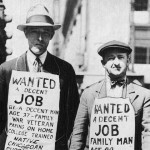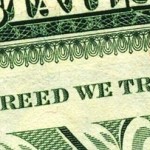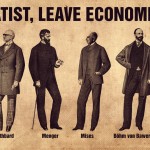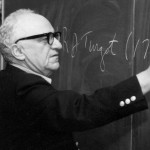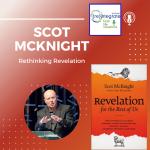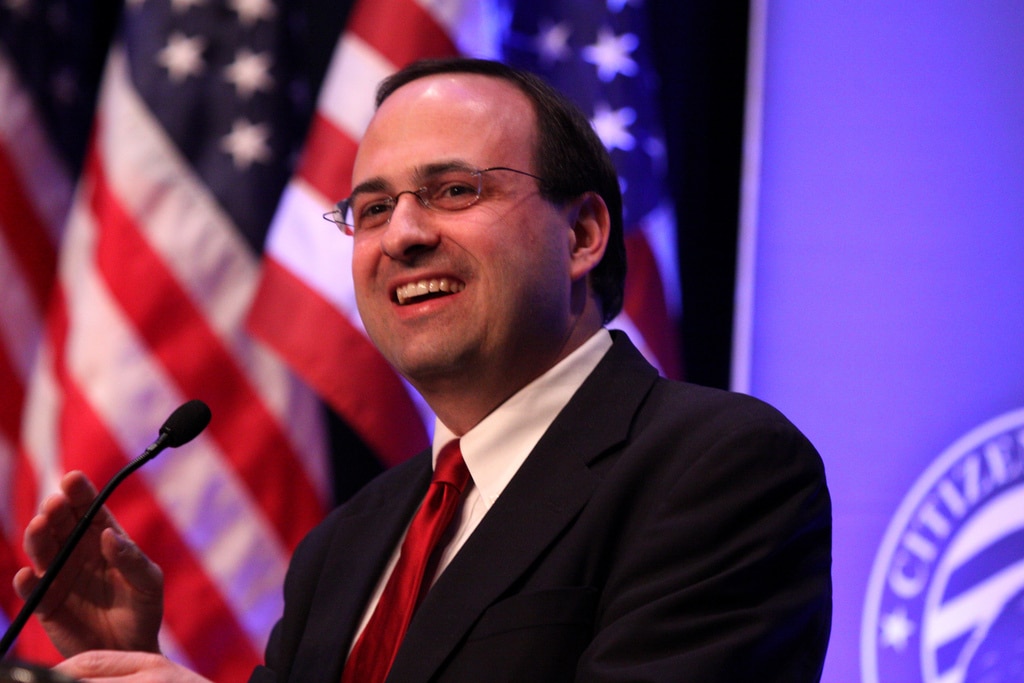
I got a late start today, but I was able to squeeze in a couple of lectures from two of my favorite speakers, David Gordon and Tom Woods. Enjoy!
Lecture 1 – Apriorism and Positivsm in the Social Sciences
Gordon begins by noting that Mises believed that economics can contribute to epistemology, that is, the study of how we know. Mises argued that economics uses a different method to arrive at general laws from that which is used in the physical sciences. In the physical sciences, you’re dealing with physical bodies without goals or purposes. In economics, you’re dealing with human beings who act to achieve goals. Mises defines action as the use of means to achieve ends. Mises was not a behaviorist. This is an Aristotelian, teleological understanding. Hayek also held this view. Mises called the study of human action praxeology. Economics is a subset of praxeology. Mises argued that human action is an a priori concept. The body of economics involves the formal implications of the fact that human beings act, that is, they use means to achieve ends, they face trade offs and opportunity costs, they act across time, and on and on and on.
It seems to me that Mises sort of threads the needle in his approach. Economics isn’t the study of “homoeconomicus” or some perfectly rational actor (or some other variation of the Nirvana Fallacy which DiLorenzo discussed in his lecture on market failure). Economics is about real human choice. However, because economics is concerned with the logical consequences of human action, the general laws it arrives at aren’t subject to empirical refutation anymore than a geometric proof or 2+2=4. Of course, this doesn’t mean that his conclusions are necessarily correct – there could be an error in the logical process. But that’s the method by which economic laws are both discovered and refuted. In other words, yes, human beings are fickle and unpredictable and you can’t predict what someone will choose if faced with a trade-off between a high-paying job with long hours or a low-paying job that offers more leisure time, but you can examine the fact of that trade-off, the fact that the trade-off involves opportunity cost, and on and on and on.
Mises received opposition from the positivists. They rejected the idea that simply by thinking about the world we could arrive at theories which tell us anything significant. To the positivists, the only way of arriving at knowledge is through the empirical method of physical science. Mises suspected that they wanted to eliminate not just metaphysical knowledge (which Mises also rejected), but economic knowledge as well – particularly since socialism had been dismantled in the economic literature. Otto Neurath was one thinker Mises was particularly suspicious of. Mises’s primary disagreement with the positivists was that there is more to knowledge than just the physical sciences.
Positivists argued that economics wasn’t actually a science because it didn’t meet the verification principle – the view that any scientific statement must be something that can be confirmed by sense experience (even if it’s incorrect). Mises argued that we do gain knowledge about the world just by thinking about things, such as in math, proving theorems, etc. – how can such “arbitrary definitions” and “tautologies” be so effective in the actual world? Further, the verification principle appears to be self-refuting. The statement itself isn’t testable. It fails its own test for what is required in confirming and establishing knowledge.
Quine objected to a priori truth. He said there aren’t any a priori truths because every claim is in principle subject to refutation. Experience is always capable of overthrowing truth, including in certain cases the laws of logic itself (though Quine was somewhat hesitant to go this far). Gordon considers this position implausible. I know from other lectures that one Austrian response to this argument is that the axiom “human beings act” cannot be refuted without confirming the axiom. To try and conduct an experiment to refute the axiom would in the course of holding the experiment demonstrate the truth of axiom.
Here’s Gordon’s lecture. I enjoy his humor.
Lecture 2 – Austrian Economics vs. Conventional Wisdom by Tom Woods
Woods delivered the opening lecture on Sunday evening and is pictured above. He’s a great speaker so I recommend watching the video.
19th century myths
Woods notes that as a young man the idea that most convinced him that the unregulated free economy was a dangerous system was the pictures of early factories, child labor, and the stories of the old monopoly robber barons. He wonders aloud why, in casual conversation about these old pictures, no one asks about why the parents would let this kind of thing happen? Factories weren’t kidnapping children. The reason, Woods says, why people worked in these kinds of conditions is that their alternatives are so poor. Pre-modern economies and third world countries were/are so capital starved and their labor so unproductive that the labor of children was/is required to secure the survival of families. Woods argues that it is capital investment – not labor law – which solves the problem of child labor and allows children to attend school.
Woods cites an article by Tom DiLorenzo that cites 17 industries which in the 19th century were accused of being monopolized, and in 15 of the 17 (matches and castor oil) output was increasing and prices were falling faster than in the rest of the economy. This is so contrary to the conventional textbook stories about monopolies and capitalism.
Hoover and FDR
According to Woods, it was well-known in the 1930s just who Herbert Hoover was. Contrary to claims about Hoover sitting back and doing nothing after the crash of 1929, FDR’s running-mate actually said that Hoover was “driving the us down the road to socialism.” In four years, Hoover spent more on public works than had been spent in the previous twenty. Hoover took steps to force wages up during a deflationary period and made incursions into trade, agriculture, short-selling, loans to states for public works, etc. In 1921, during his time as commerce secretary, the economic conditions were terrible, and in Woods’ words, “[Hoover] has a big, long list of things he wants Warren Harding to do, and Harding just completely ignores him – it’s just great, beautiful – one of the best ignorers in American history – all kinds of terrible advice swirling around him, he’s in an alcohol-induced fog, Warren Harding, good for him.”
Woods’ briefly touches on the New Deal. He notes that by 1939 unemployment rates had ticked back up to 20%. This alone should make us skeptical of the recovery claims by New Deal advocates. The AAA involved literally destroying crops at a time when the average American was struggling to get enough to eat. The whole point of the NRA was to restrain production and prop prices up. Woods cites Robert Higgs’ work on regime uncertainty, which as it relates to the Great Depression is the idea that one of the key reasons it dragged on for so long is because of the exceptional uncertainty which faced entrepreneurs and investors because no one knew what the FDR administration was going to do next. Opinion surveys of businessmen from the late 1930s are extremely revealing in this regard.
Did WW2 end the Great Depression?
Tom really questions the basic logic behind the idea that war can make a nation more prosperous. What makes us think that sending the most productive segment of the labor force in young men overseas to die will make us materially better-off? What makes us think that re-routing scarce resources, re-directing capital, and totally re-shaping our structure of production in the direction of bombs, guns, tanks and other methods of destruction and away from consumer goods which people need could possibly make a people more wealthy and raise their standard of living?
Some economists and historians cite dramatic GDP growth during WW2, but how can that be, given what we’ve laid out about how during the war young men in the labor forced were replaced by less productive elderly people and women with no job experience? He once again cites Higgs, who notes that the WW2 GDP numbers are all “infected” by government war-spending and do not reflect the fact that people suffered under rationing and product quality deterioration during the war.
Tom also discussed the economy prior to the Federal Reserve, Austrian Business Cycle Theory, and the 2008 Financial Crisis. What I found most interesting was the figure he gave that spending on financial regulation has, in real terms, adjusting for inflation, tripled since 1980. This number alone doesn’t look too good for those who would claim that deregulation caused the 2008 panic. He also addressed the partial repeal of Glass-Steagall (a repeal that was supported by Joe Biden and signed into law by Bill Clinton), which in his view is a Red Herring. According to Woods, this small act of deregulation wasn’t the reason why banks failed at normal banking activities, that is, making loans and investments. The thrust of the Glass-Steagall repeal was that it ended the separation of commercial and investment banking and brought the US system in line with the rest of the world. Woods speculated that reason anyone even mentions the repeal of Glass-Steagall is that it’s the only bit of deregulation that seems even superficially relevant since it involves banks.

